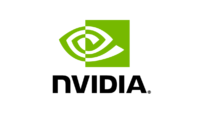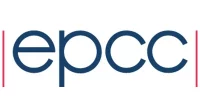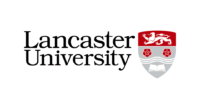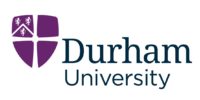SUBMISSIONS ARE NOW CLOSED.
As part of the workshop, we invite submissions from women to present their work to the HPC community as a poster accompanied with a short/lightning talk. There will be the opportunity to meet and network with leaders and employers from across the HPC community and discuss your work with them.
Submissions for posters are invited as extended abstracts (max. 500 words) and a poster (draft format is acceptable) in any area that utilises high performance computing. Not required at submission stage, but required for accepted submissions, authors are expected to give a short lightning talk (3 minutes) at the workshop itself.
Once accepted, presenters will be provided the opportunity to work with a mentor to aid in the creating a final, printable poster to take and display (from May 31st) at the event as well as the opportunity to polish their abstract and lightning talk.
We are encouraging women who consider themselves to be ‘early career’ (i.e., still studying or within five years of graduation) to participate, however this opportunity is open to help everyone who feels they may benefit from presenting their work, irrespective of career stage.
BENEFITS OF PARTICIPATING
- Present: successful authors will present their work in a lightening talk at the workshop to an HPC audience, including peers and leading women across the international HPC community. Exclusive to ISC22 you will also have the opportunity to present your poster as part of the main ISC22 poster programme
- Networking: build your HPC network, meet peers and potential employers.
- Advice and mentoring: Receive expert advice and mentorship to help prepare for your presentation, including slides, how to structure a lightning talk for effective communication and how to make the most of the networking time afterwards.
SUBMIT
Submissions are invited on all topics relating to HPC from users and developers. All abstracts should emphasise the computational aspects of the work, such as the facilities used, the challenges that HPC can help address, and any remaining challenges etc.
As an author you will have the opportunity to share your work with the workshop audience in a brief ‘elevator pitch’ talk. This will be followed by the coffee break where attendees will have the opportunity to discuss your work.
To submit your abstract please follow this link.
Should you wish to see a sample of the entire application, it can be viewed here.
NOTIFICATION DATE: May 16th, 2022
Full details on preparation of the posters will be send to successful authors on 16th May.
If you have questions please contact info@womeninhpc.org.




 Laura Schulz drives strategic development at the Leibniz Supercomputing Centre (LRZ) in Garching, Germany in the fields of future-oriented computer technologies, particularly exascale, artificial intelligence, and quantum computing. She is also the acting head of the Quantum Computing and Technologies department at LRZ. Laura was the lead author on LRZ’s quantum strategic plan and is co-founder of the regional networking and tech scouting entity, Bavarian Quantum Computing eXchange (BQCX). Prior to joining LRZ in August 2017, she was Director of Marketing Communications at the HPC Innovation Center at Lawrence Livermore National Laboratory in the US.
Laura Schulz drives strategic development at the Leibniz Supercomputing Centre (LRZ) in Garching, Germany in the fields of future-oriented computer technologies, particularly exascale, artificial intelligence, and quantum computing. She is also the acting head of the Quantum Computing and Technologies department at LRZ. Laura was the lead author on LRZ’s quantum strategic plan and is co-founder of the regional networking and tech scouting entity, Bavarian Quantum Computing eXchange (BQCX). Prior to joining LRZ in August 2017, she was Director of Marketing Communications at the HPC Innovation Center at Lawrence Livermore National Laboratory in the US.
 Jack Wells is Scientific Program Manager at NVIDIA, where he engages thought leaders across the scientific computing ecosystem, focusing on aligning the NVIDIA computing platform with stakeholder goals and mission. Jack has a PhD in Physics from Vanderbilt University. He is serving in the chair line of the American Physical Society’s Division of Computational Physics, and President of the OpenACC, a consortium dedicated to helping the research community advance science by expanding their accelerated and parallel computing capabilities.
Jack Wells is Scientific Program Manager at NVIDIA, where he engages thought leaders across the scientific computing ecosystem, focusing on aligning the NVIDIA computing platform with stakeholder goals and mission. Jack has a PhD in Physics from Vanderbilt University. He is serving in the chair line of the American Physical Society’s Division of Computational Physics, and President of the OpenACC, a consortium dedicated to helping the research community advance science by expanding their accelerated and parallel computing capabilities. Chris J. Newburn, who goes by CJ, is a Principal Architect who drives HPC strategy and the SW product roadmap in NVIDIA Compute Software, with a special focus on data center architecture and security, IO, systems, and programming models for scale. He has a passion for extending the core capabilities of hardware and software platforms from HPC into security, AI, data science, and visualization. He is a community builder, starting a middle and high school, founding multi-year developer to developer engagements with the DoE, the HPC Containers Advisory Council, and serving in a leadership role of a faith community.
Chris J. Newburn, who goes by CJ, is a Principal Architect who drives HPC strategy and the SW product roadmap in NVIDIA Compute Software, with a special focus on data center architecture and security, IO, systems, and programming models for scale. He has a passion for extending the core capabilities of hardware and software platforms from HPC into security, AI, data science, and visualization. He is a community builder, starting a middle and high school, founding multi-year developer to developer engagements with the DoE, the HPC Containers Advisory Council, and serving in a leadership role of a faith community.




